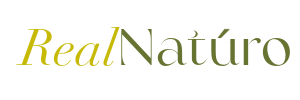Embodied & Taoist Roots vs. NLP: Transparency in a World of Manipulation
In the world of self-development and communication training, two very different lineages have shaped how we think about power, influence and change: the embodied and Taoist traditions on one side, and Neuro-Linguistic Programming (NLP) on the other. While both claim to empower individuals, their methods and ethical implications diverge sharply.
Embodied & Taoist Roots: Power Through Presence
Embodied and Taoist-based approaches teach that true influence arises from awareness, alignment, and authenticity. Taoist philosophy emphasizes harmony with natural cycles, while embodied practices draw attention back into the body: breath, posture, tone, and energetic flow.
- Transparency: Nothing is hidden. The methods are experiential—you can see, feel, and practice them in real time.
- Agency: Instead of programming or persuading, you learn to inhabit your authority and direct your attention consciously.
- Resistance to Manipulation: Because these practices are rooted in lived experience, they are less prone to being hijacked as covert persuasion tools.
Taoist teachers highlight how the flow of attention itself is the foundation of power. This kind of training makes influence visible rather than concealed.
NLP: A Toolbox with a Dark Past
By contrast, NLP; developed in the 1970s by Richard Bandler and John Grinder was designed to model and replicate successful communication patterns. It borrowed from Ericksonian hypnosis, linguistics, and post–WWII persuasion psychology.
But NLP has carried a dark past:
- Scandalous Origins: Co-founder Richard Bandler was tried (and acquitted) for murder in 1986 amid a backdrop of drug-fueled excess. The founders also feuded bitterly over control of the field.
- Pseudoscientific Claims: Despite bold promises (curing phobias in minutes, unlocking genius), NLP has consistently failed to stand up to scientific validation.
- Manipulative Potential: Techniques like anchoring, reframing, and embedded commands can be used without consent, turning NLP into a covert persuasion toolkit.
For some, NLP became synonymous with “dark influence,” feeding into sales training, pickup artistry, and high-pressure motivational seminars.
NLP on Our Screens: Selling Through Suggestion
Television offers some of the clearest examples of NLP-style persuasion used against us:
- Advertising Anchors: Happy families, uplifting jingles, and nostalgic imagery anchor emotional highs to products like soda or fast food.
- Political Ads: Attack ads use reframing (“dangerous,” “weak”) combined with embedded commands (“Don’t risk your children’s future”) to sway votes.
- Reality TV Drama: Contestants’ words are reframed through selective editing and leading interview questions, distorting perceptions for entertainment.
- Televangelism & Motivational Shows: Hypnotic speech rhythms and repeated suggestion mirror Milton Erickson’s patterns, creating a trance-like compliance.
- 24/7 News Cycles: Fear-laden phrases (“crisis,” “threat,” “emergency”) anchor anxiety to particular issues, keeping viewers hooked and agitated.
These tactics work not by inviting awareness, but by slipping under it.
Why Embodied & Taoist Approaches Are Safer
When comparing the two, the difference is clear:
| Feature | Embodied & Taoist Roots | NLP |
|---|---|---|
| Method | Experiential, body-based, transparent | Language & mental programming |
| Goal | Awareness, harmony, authentic authority | Behavior change, persuasion |
| Ethics | Centered on consent and presence | Easily used covertly |
| Risk | Low risk of manipulation | High potential for abuse |
| Legacy | Ancient, tested through practice | Controversial, fractured, pseudoscientific |
Embodied and Taoist traditions cultivate self-mastery and connection rather than manipulation. Their very nature resists the covert application that has haunted NLP since its inception.
Choosing Transparency Over Trickery
In an age where advertising, politics, and even entertainment regularly deploy hidden persuasion techniques, the choice between NLP and embodied/Taoist roots is not merely academic—it’s ethical.
NLP’s dark past and its ongoing use in manipulative media remind us how easily influence can be abused. Embodied and Taoist practices, by contrast, keep power where it belongs: in the open, rooted in the body, aligned with nature, and available to everyone who chooses to practice.
True influence doesn’t come from programming others it comes from showing up fully in your own authority.

